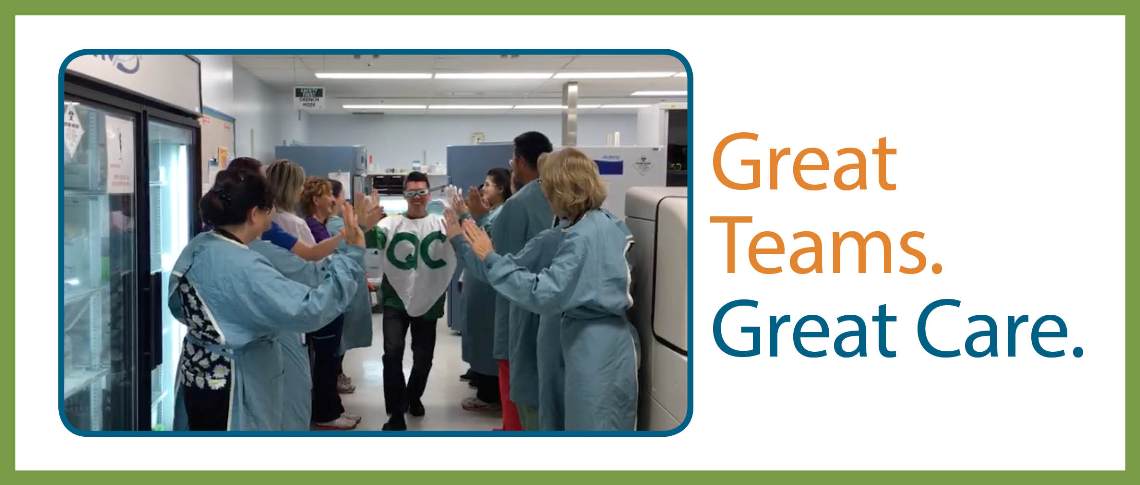

It's all about the chemistry for the lab team at the Sturgeon Community Hospital.
Beyond the pipettes and technology, the team also has the science of patient-centred care down to a tee.
While the technical aspects of lab work play a crucial role in diagnosis, disease prevention and public health surveillance, it’s their kindness that creates a positive experience for all involved. Compassion, communication, teamwork, and even some play, come together daily.
Chris Faryna, a lab assistant, recalls stepping up to help a Texan co-worker with morning collection. When Faryna visited an elderly patient who had been eagerly expecting the Texan, she asked Faryna the whereabouts of "her Texas rose”, whose southern accent and cheerful attitude had made such a positive and lasting impression.
Of her colleague, Faryna says: “She’ll often make time in her extremely busy day to make patients feel special. She embodies patient-centred care.”
When the little ones come in for testing, they and their families can also expect a caring touch.
“We do small things to put children at ease,” says team leader Maibritt Millions.
“For example, staff always take the time to connect with the patient, listen to their concerns and explain the procedure. At the end of it, kids get a sticker or two to make it all better!”
Doughnuts, baked goods and thank-you cards from patients, who often return for further blood tests, also give delicious proof of their appreciation and show the staff they’re making a positive impact on their community.
Weekly staff huddles also promote open communication among team members.
“It’s a safe place for them to bring up concerns, ideas and suggestions,” says lab supervisor Eugene Cheung.
Potluck suppers and a Secret Santa exchange every year also contribute to team-building, as do retirement parties, baby showers or a Friday night out together.
Many friendships at the Sturgeon lab, where staff refer to coworkers as their “second family”, extend beyond work hours.
Many of these bonds are forged by the natural reliance laboratory assistants and laboratory technologist have on each other.
Lab assistants often face challenging and stressful situations to collect specimens on the wards. Technologists know they can trust them to bring them what they need to do their job.
Reciprocally, lab assistants depend on technologists for, well, technical advice. When issues arise, assistants often phone the lab for support.
For example, when a patient experiences massive bleeding, staff follow a special protocol. In such instances, all lab departments work as one cohesive unit to rush blood products to the patient’s bedside.
When time is of the essence in getting lab results to clinicians, the Sturgeon team hums like a well-oiled machine.
“Here at the Sturgeon,” says lab technologist Pam Flegg, “all our departments pull together to provide the best care for our patients.”
And that’s the way lab staff like it.